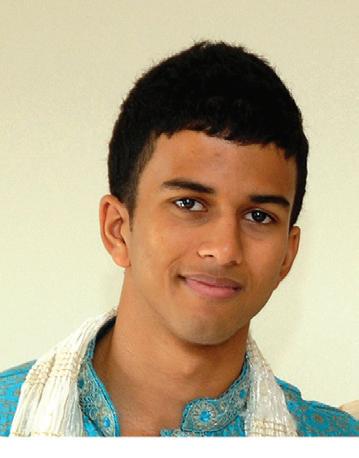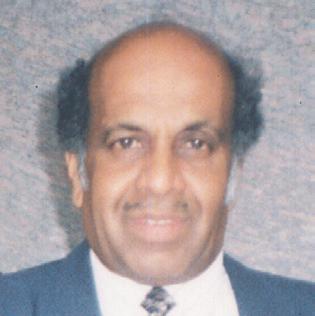
4 minute read
The immigration debate continues
from 2010-08 Melbourne
by Indian Link
As the federal election looms old issues re-emerge, and once again the focus is on preserving the Australian way of life
caste or personality. For Indians, brown skin is just a fact of life, through a process of natural evolution, and various other factors such as climate and ancestry. It is a fascinating phenomenon then, that we discriminate against what is essentially our own skin colour.
On my most recent trip to India, for example, I was met with surprise from relatives who exclaimed “Look how dark you’ve become! You were so much fairer as a child!” I proceeded to inform them of the 15 hours I spend in the harsh Australian sun every week for cricket training and matches, as well as the countless lunchtimes and recesses playing in the sun at school. Yet it did not seem to be a legitimate enough reason to them for my becoming darker! Indeed, ironically enough in most European nations, fairer-skinned people often seek tanned skin, with the darker tone supposedly reflecting good health. However, in contrast to products such as Fair and Lovely which promote lighter skin by discouraging dark skin, there is barely any stigma here associated with having pale skin. This begs the question that is not asked often enough: are we, as Indians, a nation of closet racists?
Before you think about this question, imagine for a second that a company from a Western nation released this Facebook application. Controversy would again ensue, however on a much more emotionally - and racially - charged scale. The use of such popular figures such as Shah Rukh Khan, Shahid Kapoor and John Abraham to market the products has, without a doubt, a detrimental effect on impressionable teenagers: in today’s image-conscious society, this is the last thing we need.
So put yourself in Anuradha Nigam’s [name changed] shoes, the 25-year-old lady who was denied marriage to her long-time boyfriend, because she was deemed “not fair” by his mother. Put yourself in the shoes of countless civilians in India who have been racially profiled and denied jobs as a result of darker skin. Put yourself in the shoes of millions of teenagers across the world dreading school the next day because they aren’t “fair”. Feel oppressed?
BY NOEL G DE SOUZA
Australia is comfortable with its British-based culture. Australians expect any government they elect to nourish and preserve that “core” culture. This expectation is an emerging theme in the lead-up to the forthcoming federal election.
Indians share many aspects of that Britishbased culture.

Since the end of World War II, Australians have been tolerant and accommodative of many other cultures, both European and Asian. There have also been concerted efforts to encourage Asian links, such as through the learning of Asian languages and cultures.
Australians love their way of life. For many Australians, this equates to suburban living, leisurely commuting to work and housing affordability. But this lifestyle cannot be achieved or maintained if there are sudden and significant increases in population. This past decade has seen the arrival of over a million migrants.
To cope, state and local governments are proposing high-rise dwellings in selected suburbs. The last decade has seen big cities moving skywards to accommodate an expanding population. This is causing anxiety in suburban dwellers, who see their preferred lifestyles under threat. Maintaining the Australian “way of life” is an underlying issue, particularly in marginal seats.
In the national population report published in 2009, a projection based on the current growth rate predicted a population of 36 million by 2050. When Kevin Rudd spoke about believing in a big Australia, it was assumed (perhaps erroneously) that he had endorsed this figure. Mr Rudd had not nominated any particular figure, but the figure of 36 million sent alarm bells ringing amongst those who cherish the current Australia and who see the value in preserving its lifestyle for forthcoming generations.
There are two major concerns amongst Australians regarding population increase. Firstly, because this continent suffers from frequent droughts and considerable water shortage (like those experienced within the last decade), it cannot support a dramatic increase in people. As Minister for a Sustainable Population Tony Burke says, “The air you breathe, the parkland you have, the congestion in the traffic - all of those issues are real issues and if you’re only looking at productivity rather than sustainability, you’ll miss half the equation.”
The second concern is based on the fear that too sudden and too great a population increase could result in a loss of culture and of identity. Australian culture is based on the English language and the Westminster system of politics, and the zeal amongst Australians for retaining these features is not surprising. Any threat to Australia’s cultural identity considerably troubles many people. This is akin to every Indian state that zealously guards its language, upon which is based its people’s identity.

Australia is not unique in wanting to preserve its cultural heritage. No country welcomes being swamped by a large influx of migrants. There is concern in the United States at the number of illegal arrivals from Mexico into its southern states. Several European countries are alarmed at the entry of migrants from other nations of the European Union.
Australian senior citizens are the depository of the old and continuing values of Australia. Between 13 - 15% of Australians are aged between 55 and 65. These individuals have had considerable influence in shaping Australia’s culture within the last five decades. That period ushered in multiculturalism whilst retaining the pre-eminence of the English language and the democratic system with which Indians are also familiar.
Senior citizens form a sizeable chunk of electoral constituencies and this gives them considerable clout. Major political parties carefully avoid either ignoring or offending them. Many federal seats have been won by margins of below 4%, such as in Southeast Queensland and in Western Sydney. It is said that the forthcoming federal election will be won or lost in such seats. When Prime Minister Gillard emphasised her opposition to a “big Australia”, a lot of voters heaved a sigh of relief. The opposition leader Tony Abbott’s criticism of asylum boat arrivals also focuses on population concerns. The numbers of refugees arriving by boat are small compared to the total annual migrant intake but, if left unchecked, the fear is that floodgates could dangerously open for unlimited arrivals.
The Liberal Party has vowed to cut immigration to around 170,000 per year but the Labor Party claims that its policies have already reduced immigration close to that figure.
This is a unique election wherein both the Prime Minister and the opposition leader are British-born, but Australian-raised. Many older Australian voters are either Britishborn or of British descent. Julia Gillard has emphasised that Australia’s principal links are with the United States and Britain. This is reminiscent of the “Anglo-sphere” talk of the Howard years.
This “Anglo-Sphere” emphasis should not worry Indians overmuch. Indians have migrated to Australia on the strength of their English-language qualifications, many of them having good quality jobs. India has a considerable stake in the world’s “AngloSphere”.









